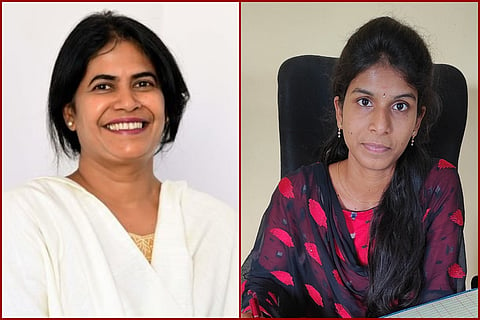

Akhila Yadav, is a 23-year-old Sarpanch from the Madanapuram village in Nalgonda district of Telangana. A strong leader who made headlines for her grit and determination in protecting her village during the COVID-19 pandemic, Akhila is well respected in her village. But things weren’t always so. There was a time, Akhila says, when she was targeted in public meetings, and was repeatedly questioned on the same issues because people didn’t trust her – a young woman – to be their leader. “I learnt to survive by learning more about people's issues by being in the field as much as possible,” Akhila says.
The story is similar for most successful women leaders in politics. On the one hand, several elected women leaders in panchayats and local bodies are seen simply as proxies for their husbands and fathers. On the other, there are multiple roadblocks put up whenever women raise their voice to shatter such an image. So what are the ways in which successful women leaders overcome these challenges of systemic patriarchy?
TNM spoke to three successful woman candidates from various positions across the state, to ask them about their formulas for success.
Akhila Yadav
Akhila Yadav made headlines during the COVID-19 pandemic, when she barricaded her village border to prevent outsiders who were coming to their village for Toddy. She stood at the border along with her father in the early hours, every day for a week, to protect villagers from the further coronavirus spread. For this, she has gained the respect of her people, and citizens everywhere.
"When I first took up the position (of Sarpanch), my father used to help me understand the issues in the locality,” Akhila tells TNM, “While attending some meetings, certain people used to target me and used to single me out and then used to pose questions again and again in a harsh tone. But even in those times, I learnt to survive by learning more about people's issues by being in the field as much as possible, by talking to the concerned officials on how to solve the issue."
Further Akhila adds, her preparation combined with a loud and clear answer to naysayers has helped her succeed. "The people who used to question me deliberately and pointedly have stopped. They understood that I am capable of answering them," says the confident Sarpanch.
Ayesha Rubina
A corporator from Hyderabad, Ayesha Rubina says there is always a kind of resistance from the public towards women in politics.
“There are several people who question – what can you do, being a woman? So in such circumstances, we have to prove people that we are there for them, when they face issues. Then, change will come, slowly but surely," says Ayesha.
Ayesha was on the ground to help people during the recent floods in the city. "As a politician, we have to be in the field even at odd hours, to help people with their needs,” Ayesha says, “This helped me in building a better bond with the public. So it depends on how we approach the problem and how we tackle situations. For me working doubly hard and being in the field, helped me in getting closer to people."
Sandhya (name changed)
Sandhya (name changed), a counsellor in a small town in Telangana, says attending public meetings as a woman politician is sometimes tricky. "There are a lot of people ready to judge a woman when she is out in public as a politician. If we talk loudly, they say, 'look how loud she is' and if we talk less, they say, 'look, she doesn't speak anything'. Initially, I was lost on how to deal with the situations, as there was this continuous dilemma on what people think and how they react."
However, Sandhya says, she has moved with the flow, by keeping her doubts aside and focusing on people's issues. She also says there is a need for a change in public perspective of women candidates
The Greater Hyderabad Municipal Corporation (GHMC) is all set to go for the election on December 1. In this municipal election, out of the 150 divisions, 75 are reserved for woman candidates, with 50% seats reserved for women. Though this reservation is being implemented in the GHMC since 2015 through an executive order, this year the Telangana government has passed a legislative order too to ensure the same. For the 75 reserved divisions for women, this time there are 541 woman candidates in the fray, according to the reports.